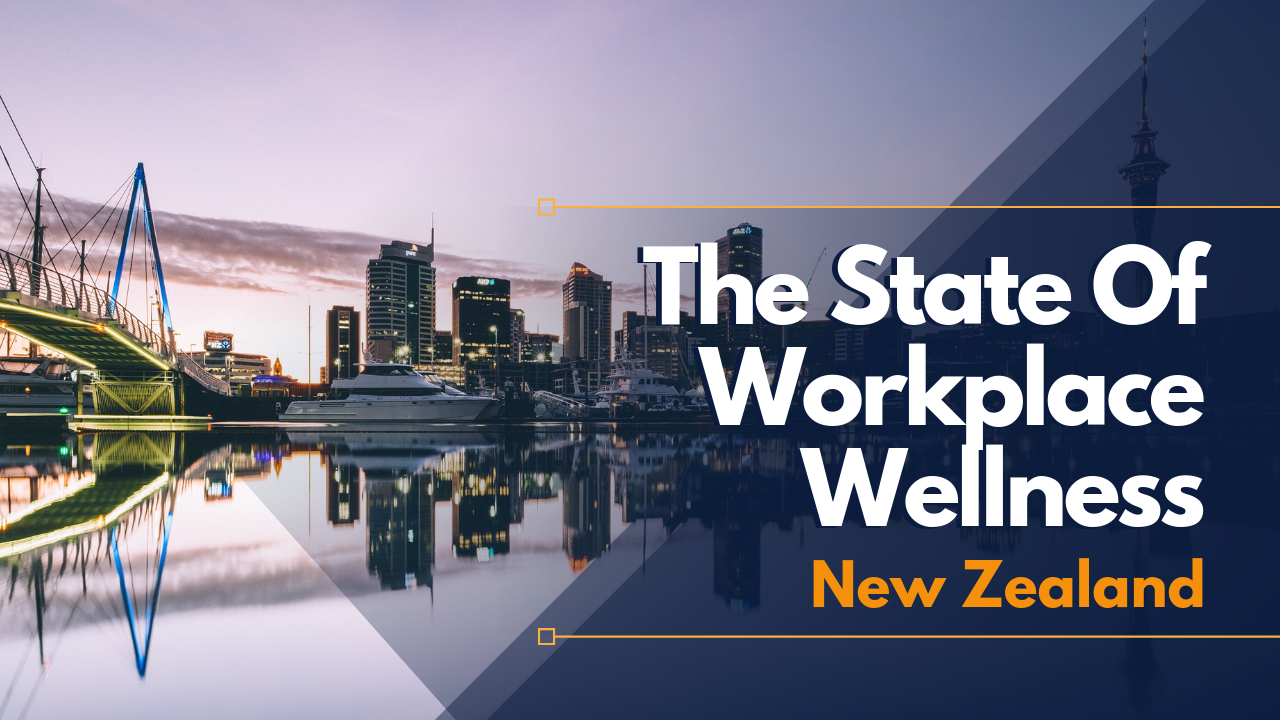- A recent report by Southern Cross Health Society and BusinessNZ reveals the current state of workplace wellness in New Zealand.
- Following global trends, the report shows that mental health has become a priority and that companies are increasingly investing more in the wellbeing of workers.
- A promising finding from the survey is the fact that companies now recognize stress, anxiety, and depression as legitimate causes of absence.
Southern Cross Health Society and BusinessNZ recently published the results of their 4th workplace wellness survey. The survey is an in-depth report on the health and wellness of New Zealand workplaces. Following global trends, the report shows that absenteeism negatively impacts the economy; that mental health has become a priority for businesses and workers alike; and that organizations are investing more in the wellbeing of their workers.
Suggested Reading: “What’s behind the Increased Attention to Wellness?”
In New Zealand, as in other countries, health and wellbeing are increasingly recognized as critical factors in achieving a high-performing productive workplace. Fact is that the wellness of staff plays a sizable role in the success of an organization, regardless of size.
Key Findings from the Workplace Wellness Report 2019
- In 2018 alone, absenteeism cost the New Zealand economy $1.79 billion.
- 23.5% of businesses reported an increase in stress and anxiety.
- The average rate of absence in 2018 was 4.7 days per employee.
- Absence levels are higher among manual workers compared to knowledge workers.
- In 2018, New Zealand saw 7.4 million working days lost due to absence.
- Employee absenteeism costs companies between $600 to $1,000 a year per employee.
- Organizations invested an estimated $2.37 billion in workplace wellness in 2018.
- On average, organizations spent $1,502 per worker on wellness related benefits per year.
- The most common causes of employee absenteeism include: non-work related illness and injury, caring for family members, and mental health issues and stress.

Looking Forward
Although 23.5% of businesses reported an increase in stress and anxiety, the good news is that the survey found that the increased proportion of absence that is due to both work and non-work related anxiety/stress/depression is “most likely due to organisations acknowledging such things, and sending a signal to staff that these are a legitimate cause of absence.”
The survey found that general workload is the leading cause for stress, fatigue, and overall mental health at work among businesses of all sizes, closely followed by relationships at work, which is especially the case for professionals working in smaller companies. Additionally, the survey found that “change at work was the second most common cause of stress for businesses with 50+ staff.”
Suggested Reading: “5 Telltale Signs of a Toxic Workplace”
To better address mental health in the workplace, companies have turned to employee assistance programmes and flexible working policies. Larger organizations rely more on employee assistance programmes, while smaller organizations with more limited budgets have found flexible working arrangements to be a key option for their staff.
To complement both of these strategies, companies are using some form of staff social club and or hosting activities, which “highlights the usefulness of social connections beyond standard work time in what would most likely be a more relaxed environment.”
While mental health is being increasingly addressed and recognized as a key part of employee wellbeing, there remain some areas for improvement, mainly how to deal with sick staff.
Despite the fact that “the proportion of staff that are more likely to turn up to work despite being sick is now at its lowest point, around 35 percent in 2018”, most enterprises still allocate a specific number of days for staff to be off sick. This means that although a higher proportion of businesses are encouraging staff to stay home when sick, in order for staff to feel more encouraged to do so requires that companies provide unlimited leave as an option.



 Dr. Gleb Tsipursky – The Office Whisperer
Dr. Gleb Tsipursky – The Office Whisperer Nirit Cohen – WorkFutures
Nirit Cohen – WorkFutures Angela Howard – Culture Expert
Angela Howard – Culture Expert Drew Jones – Design & Innovation
Drew Jones – Design & Innovation Jonathan Price – CRE & Flex Expert
Jonathan Price – CRE & Flex Expert












